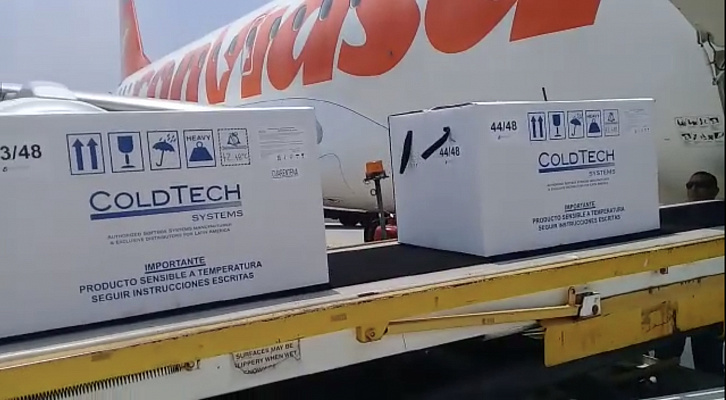
600 thousand doses of influenza vaccine, produced by the joint Russian-Nicaraguan Institute MECHNIKOV (Nicaragua), were delivered to Cuba for the annual vaccination of the population. Also, as part of the joint Russian-Cuban work, eight thousand doses of the Cuban-made Interferon Alfa 2b were delivered to Nicaragua, where the medication will be used to counter the spread of COVID-19. In view of the complicated international situation, the very fact of this delivery is a significant achievement for Havana and Managua.
The delivery was carried out with the assistance of the Instituto MECHNIKOV, a joint Russian-Nicaraguan immunobiological production, in particular, influenza vaccines. “We responded to the request of our Cuban colleagues and worked out the logistics for delivering our influenza vaccine to Cuba, 600 thousand doses in total, so that the same plane could deliver to Managua the interferon that Nicaraguans desperately need now,” explained Stanislav Uiba, General Director of Instituto MECHNIKOV. Earlier, President of The Nicaraguan Social Security Institute (INSS) Roberto Lopez claimed that “Nicaragua will be able to produce the Cuban medication Interferon Alfa 2b at its own vaccine plant, the Instituto MECHNIKOV.” This refers to the technology transfer for the production of the Cuban interferon to Managua, which Stanislav Uiba also confirmed.
According to the World Health Organization (WHO, https://who.sprinklr.com/), as of April 13, Nicaragua had only 7 cases of the new COVID-19 infection. Local experts account such a low rate of the disease spread across the country partly for the collateral effect of the annual influenza vaccination, which has been held in Nicaragua using the Russian vaccine for four years running. As experts have repeatedly stated, influenza vaccines do not have specific activity against coronavirus, however, nonspecific effects make it possible to consider influenza vaccines as a tool for controlling coronavirus. Influenza infection can increase the risk of secondary SARS-CoV-2 viral infection resulting in severe COVID-19 symptoms requiring hospitalization and intensive care.